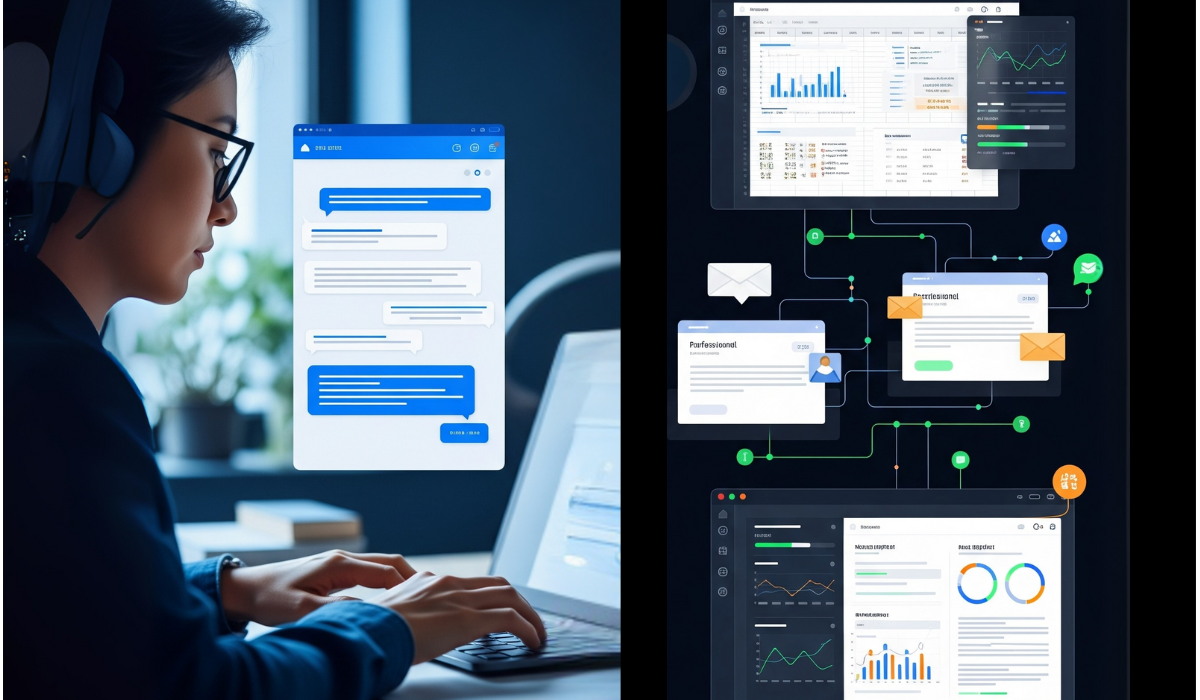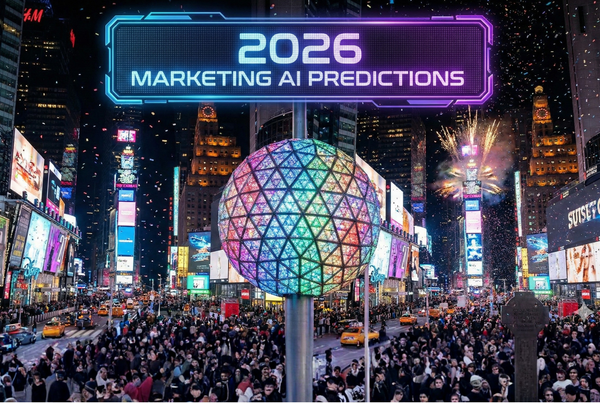From Prompts to Persistence: How ChatGPT Agents Promise to Transform Marketing Workflows
Shift from reactive content creation to autonomous, persistent execution across the marketing lifecycle.

If you’ve used ChatGPT to brainstorm campaign ideas, draft content, or summarize research, you’ve already seen the power of AI in marketing. But the next evolution of AI workflow is now available: ChatGPT Agents.
OpenAI formally launched ChatGPT Agents in July 2025, turning ChatGPT into an action-capable system with the ability to browse the web, operate software, generate deliverables, and connect with tools like Google Drive and Gmail. This marks the beginning of a new phase—where AI not only analyzes or generates, but truly acts on your behalf. As TechCrunch described it:
"OpenAI introduced ChatGPT Agent—a unified system that not only researches and reasons but acts on your behalf, using its own virtual computer to perform tasks like browsing, form-filling, coding, and report generation." (Read the official announcement)
Agents aren’t just another way to prompt an AI—they’re a new way of working. For marketers, they represent a shift from momentary assistance to persistent execution. While I’m still early in hands-on testing, what’s clear is the promise: a shift from reactive content creation to autonomous, persistent execution across the marketing lifecycle.
How ChatGPT Agents Go Beyond the Basics
Traditional ChatGPT is prompt-driven: you ask, it answers. Agents operate autonomously, pursue long-term goals, and integrate with your real marketing workflows. Think of agents not as smarter chatbots—but as virtual marketing teammates.
Agents aren’t just an evolution in capability, they represent a potential shift in how marketing work is structured. While I’m still testing this myself, I’m paying close attention to how Agents could replace disconnected, manual tasks with orchestrated, intelligent workflows.
This shift could impact everything from how we staff teams, to how we prioritize campaigns, to how fast we go to market. As with the rise of marketing automation tools a decade ago, early adopters may gain a compounding advantage, not only in output, but in strategic clarity.
Agents Work on Their Own
With standard ChatGPT, you initiate every interaction. Agents, on the other hand, can run on schedules or respond to triggers, working in the background even when you're not watching.
- Example: An agent could track your competitors' blogs every Monday, summarize the new posts, and email you a gap analysis.
Agents Have Memory and Strategic Intent
Agents can remember your brand tone, marketing goals, key personas, and preferred platforms. Over time, they get smarter, fine-tuning outputs based on feedback or performance.
- Example: You could instruct an agent to build a monthly content calendar for B2B buyers in healthcare, based on past campaigns and evolving market trends.
Agents Use Your Tools
Agents can interact with APIs and software like Google Sheets, HubSpot, Slack, Notion, and more. They’re not just writing copy, they’re executing across platforms.
- Example: A lead-nurturing agent could detect when a high-fit prospect fills out a form, classify the persona, and draft a tailored follow-up email in your CRM.
Agents Can Respond to Events
Unlike regular ChatGPT, agents don’t wait for you. They can be event-driven, responding in real time to changes in your data, dashboards, or customer behavior.
- Example: If your email open rate drops below a threshold, an agent could generate a subject line test plan, flag underperforming segments, and notify your team.
Agents Can Collaborate
You can create multiple agents, each focused on a different function (content, analytics, outreach) and have them collaborate. It’s a modular, scalable system for execution.
- Example: One agent runs weekly performance reports while another generates blog ideas from those insights, handing off topics to a third agent that drafts outlines.
Real-World Comparison
| Task | Regular ChatGPT | ChatGPT Agent |
|---|---|---|
| Write a blog post | You prompt manually | Runs weekly, pulls from idea queue |
| Monitor SEO performance | Needs manual input | Connects to tools, tracks trends |
| Draft email sequences | With guidance | Tailored by persona, sent to CRM |
| Follow up with leads | Not native | Instant replies triggered by forms |
| Manage campaigns | You check in manually | Flags issues, suggests optimizations |
I’ll share more real-world use cases as I continue experimenting with what Agents can do in a marketing environment.





